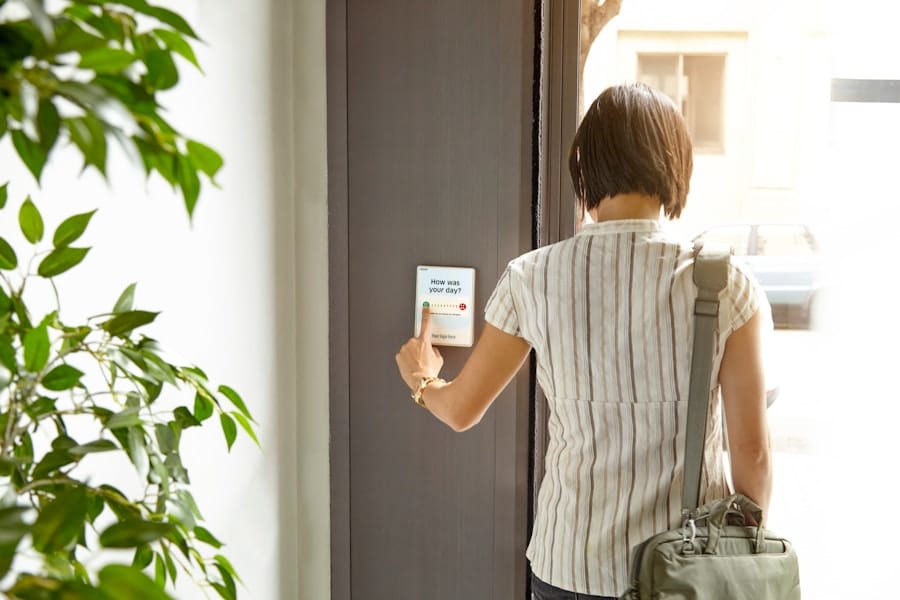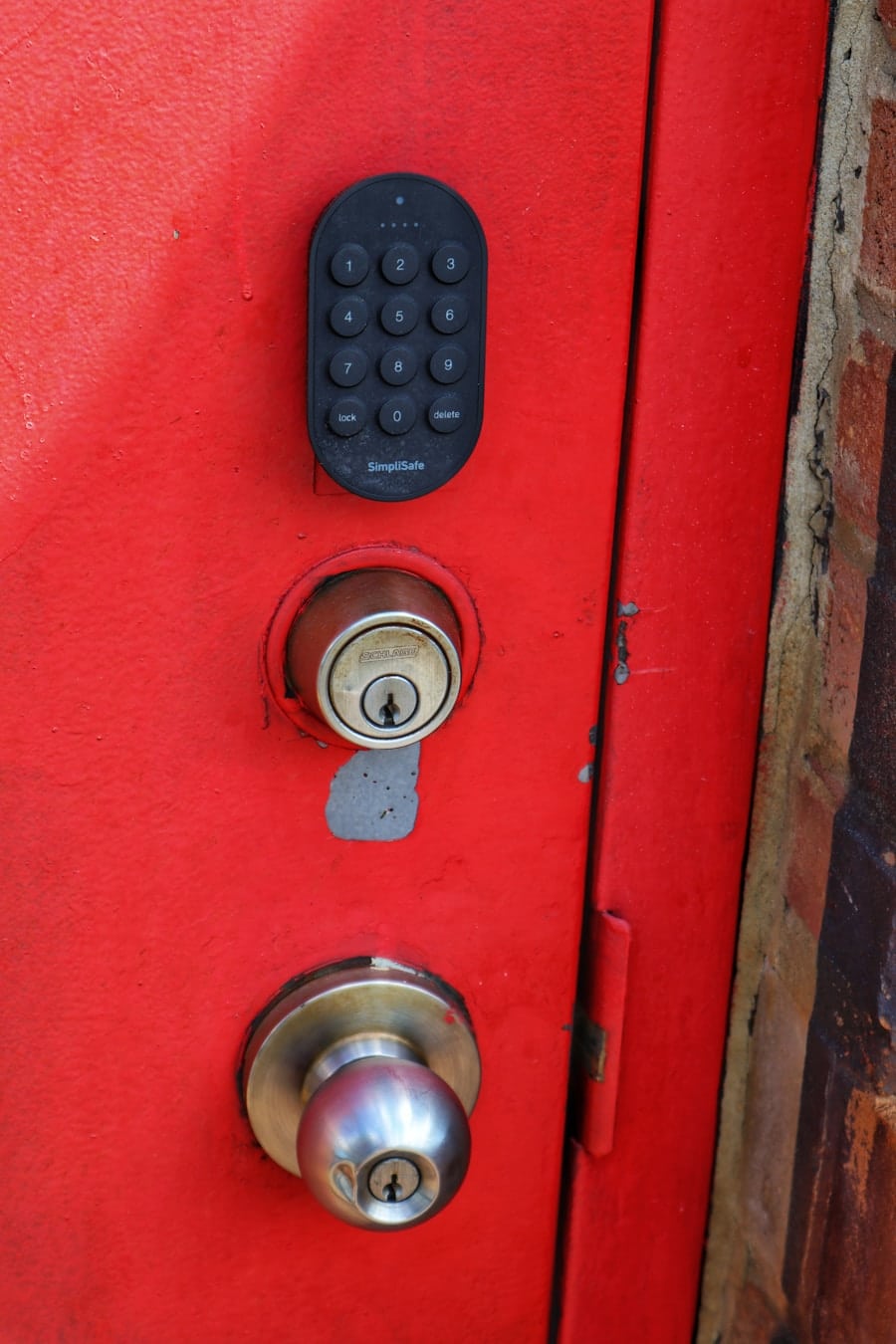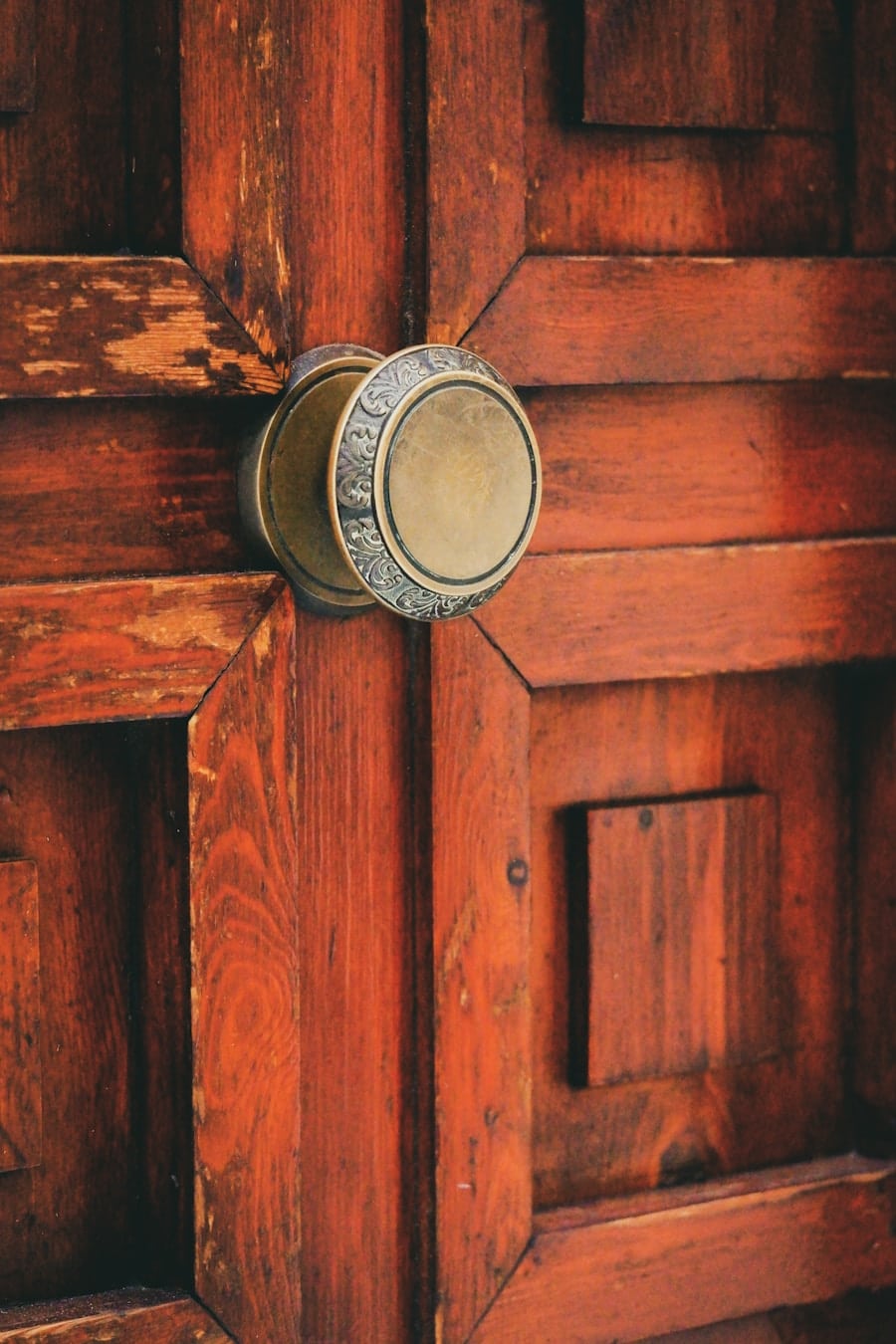The concept of home access control has undergone a remarkable transformation over the centuries, evolving from rudimentary locking mechanisms to sophisticated digital systems. In ancient times, securing a dwelling was a straightforward affair, often involving simple wooden doors bolted with crude locks made from metal. These early locks were easily compromised, leading to the development of more complex designs, such as the pin tumbler lock, which emerged in ancient Egypt around 4000 years ago.
As societies advanced, so did the technology behind locks, with innovations like the combination lock and the lever lock appearing in the 19th century, providing homeowners with enhanced security. The late 20th century marked a significant turning point in home access control with the advent of electronic locks. These systems began to replace traditional mechanical locks, offering features such as keypad entry and remote access.
The introduction of RFID technology further revolutionized access control, allowing users to unlock doors with key fobs or cards. As the 21st century progressed, the rise of the Internet of Things (IoT) paved the way for smart locks, which integrate seamlessly with home automation systems. This evolution reflects not only advancements in technology but also changing consumer expectations regarding convenience, security, and connectivity.
Key Takeaways
- Home access control has evolved from traditional locks and keys to smart locks, offering convenience and enhanced security.
- Smart locks provide benefits such as remote access, keyless entry, and activity monitoring, making them a popular choice for homeowners.
- Smart locks work by using wireless technology to communicate with a smartphone or other connected devices for locking and unlocking doors.
- When choosing a smart lock, look for features such as compatibility with existing door hardware, battery life, and integration with smart home systems.
- Smart locks can be integrated with smart home systems to enhance security and convenience, allowing for seamless control and monitoring of the entire home.
The Benefits of Smart Locks
Smart locks offer a plethora of benefits that cater to modern lifestyles, making them an attractive option for homeowners seeking enhanced security and convenience. One of the most significant advantages is the ability to control access remotely. With a smart lock, users can lock or unlock their doors from anywhere using a smartphone app.
This feature is particularly useful for those who frequently have guests or service providers entering their homes while they are away. For instance, a homeowner can grant temporary access to a dog walker or a delivery person without needing to be physically present. Another compelling benefit of smart locks is their ability to provide detailed access logs.
Many smart lock systems keep track of who enters and exits the home and at what times. This feature can be invaluable for families with children or for those who want to monitor the comings and goings of household staff. Additionally, smart locks often allow for multiple user profiles, enabling different access levels for family members, guests, or service personnel.
This level of customization not only enhances security but also provides peace of mind for homeowners.
How Smart Locks Work

At their core, smart locks operate through a combination of hardware and software designed to facilitate secure access control. Most smart locks utilize Bluetooth or Wi-Fi technology to connect to a user’s smartphone or home network. When a user approaches their door with a smartphone equipped with the corresponding app, the lock communicates wirelessly to authenticate the user’s identity.
Once verified, the lock disengages, allowing entry without the need for a physical key. In addition to smartphone connectivity, many smart locks incorporate various authentication methods to enhance security.
This multi-faceted approach ensures that even if one method is compromised, others remain secure. Furthermore, many smart locks are designed with fail-safes; for example, they may have backup keys or mechanical overrides in case of battery failure or technical issues.
Features to Look for in a Smart Lock
When selecting a smart lock, several key features should be considered to ensure it meets individual security needs and lifestyle preferences. One essential feature is compatibility with existing smart home systems. Many homeowners invest in comprehensive smart home ecosystems that include devices like smart lights, thermostats, and security cameras.
A smart lock that integrates seamlessly with these systems can enhance overall functionality and convenience. Another important consideration is the lock’s power source and battery life. Most smart locks operate on batteries, so it’s crucial to choose a model that offers long-lasting power and easy battery replacement options.
Some advanced models even come equipped with low-battery alerts sent directly to the user’s smartphone, ensuring that they are never caught off guard by a dead lock. Additionally, features such as weather resistance and durability are vital for outdoor installations, as these factors contribute significantly to the lock’s longevity and reliability.
Integration with Smart Home Systems
The integration of smart locks with broader smart home systems represents a significant advancement in home automation technology. Many modern smart locks are designed to work harmoniously with platforms such as Amazon Alexa, Google Assistant, and Apple HomeKit. This compatibility allows users to control their locks through voice commands or automate locking and unlocking based on specific triggers within their smart home ecosystem.
For example, a homeowner can set up routines where the smart lock automatically engages when they leave for work in the morning or unlocks when they arrive home after a long day. This level of automation not only enhances convenience but also contributes to energy efficiency by allowing other connected devices—like lights and thermostats—to adjust based on occupancy status. Furthermore, integration with security cameras can provide real-time video feeds when someone approaches the door, allowing homeowners to verify visitors before granting access.
Enhancing Security with Smart Locks

Smart locks significantly enhance home security through various innovative features designed to deter unauthorized access and provide homeowners with greater control over their premises. One of the most effective security enhancements is the ability to create temporary access codes for guests or service providers. This feature allows homeowners to grant limited-time access without sharing permanent keys or codes, reducing the risk of unauthorized entry after the visit.
Moreover, many smart locks come equipped with advanced encryption protocols that protect data transmitted between the lock and connected devices. This encryption ensures that even if someone attempts to intercept communication signals, they cannot gain access to the lock’s functionality. Additionally, some models include tamper alerts that notify homeowners if someone attempts to force entry or manipulate the lock in any way.
These proactive security measures provide an added layer of protection that traditional locks simply cannot offer.
Potential Drawbacks of Smart Locks
Despite their numerous advantages, smart locks are not without potential drawbacks that homeowners should consider before making a purchase. One significant concern is reliance on technology; if a homeowner’s Wi-Fi network goes down or if there is a power outage, they may find themselves locked out of their home if they do not have a backup key or alternative entry method available. This reliance on connectivity can be particularly problematic in areas prone to outages or where internet service is unreliable.
Another potential drawback is the risk of hacking or unauthorized access through digital means. While reputable manufacturers implement robust security measures, no system is entirely immune to cyber threats. Homeowners must remain vigilant about keeping their devices updated with the latest firmware and security patches to mitigate these risks effectively.
Additionally, some users may find the initial setup process for smart locks more complex than traditional locks, requiring a certain level of technical proficiency that not all homeowners possess.
The Future of Smart Lock Technology
As technology continues to advance at an unprecedented pace, the future of smart lock technology promises even greater innovations that will further enhance security and convenience for homeowners. One emerging trend is the integration of artificial intelligence (AI) into smart lock systems. AI could enable locks to learn user behavior patterns over time, optimizing access control based on individual habits and preferences.
For instance, an AI-enabled lock might automatically adjust its settings based on when users typically leave or return home. Additionally, advancements in biometric technology may lead to more sophisticated authentication methods beyond fingerprints and keypads. Future smart locks could incorporate facial recognition or even voice recognition capabilities, providing an additional layer of security while streamlining user experience.
In conclusion, as we look ahead at the evolution of home access control through smart locks, it is clear that these devices will play an increasingly central role in our lives—offering not just enhanced security but also unparalleled convenience in managing our homes.
If you are interested in enhancing your home security with smart technology, you may also want to consider upgrading your laptop for video editing. Choosing the right laptop for video editing can greatly improve your workflow and productivity. Check out this article on how to choose a laptop for video editing for tips and recommendations on the best laptops for video and photo editing. By investing in the right tools for both home security and creative projects, you can create a more efficient and secure living environment.
FAQs
What is a smart lock?
A smart lock is a type of electronic lock that can be controlled and monitored remotely using a smartphone, tablet, or computer. It typically uses Bluetooth, Wi-Fi, or Z-Wave technology to connect to a mobile app or home automation system.
How do smart locks enhance home access control?
Smart locks enhance home access control by allowing homeowners to lock and unlock their doors remotely, grant temporary access to guests or service providers, and receive notifications when the door is accessed. They also eliminate the need for physical keys, reducing the risk of lost or stolen keys.
What security features do smart locks offer?
Smart locks offer security features such as encrypted communication, tamper alerts, and activity logs that track who has accessed the door and when. Some models also have built-in alarms and integration with home security systems.
Are smart locks compatible with existing door hardware?
Many smart locks are designed to be compatible with existing door hardware, making it easy to retrofit them onto standard doors. However, it’s important to check compatibility with specific door types and sizes before purchasing a smart lock.
Can smart locks be hacked?
While no system is completely immune to hacking, smart locks use advanced encryption and security protocols to protect against unauthorized access. It’s important for homeowners to follow best practices for securing their smart lock, such as using strong passwords and keeping their mobile devices secure.

